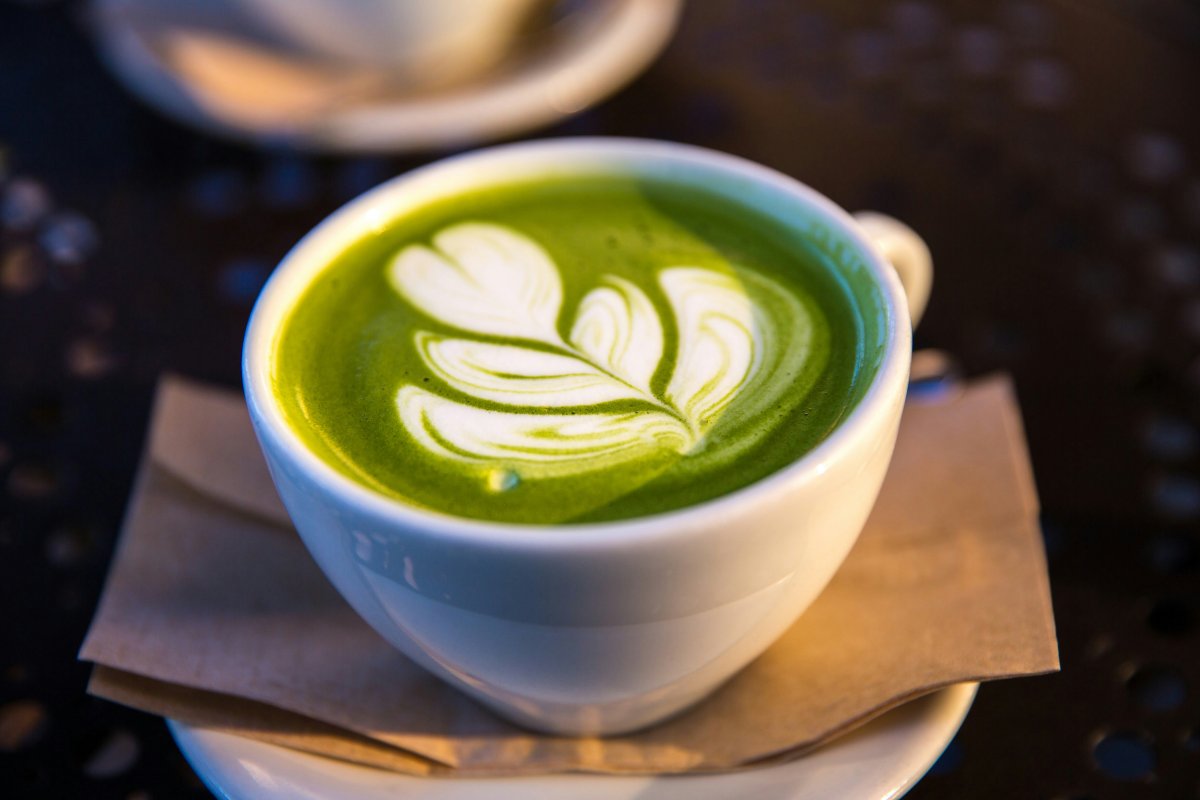
When a popular health habit suddenly turns into a cautionary tale, it can leave many people wondering whether their daily routines are as safe as they seem.
Stories like these spread quickly online, stirring both anxiety and curiosity about the hidden risks behind everyday choices.
A Sydney woman's brush with hospitalisation after drinking matcha daily has sparked widespread concern across social media, but health experts say there's more to this story than meets the eye.
Laura Wiersma, 28, developed severe iron deficiency after making matcha her daily caffeine fix, eventually requiring hospitalisation and an iron transfusion. Her warning video has since gone viral, accumulating over 1.2 million views and prompting countless Australians to question their own green tea habits.
Laura, who also lives with Crohn’s disease, explained that the digestive condition already made it harder for her to absorb nutrients. Because meat was difficult to digest, she relied heavily on vegetables like spinach for iron. But her daily matcha habit ended up blocking much of that absorption, which worsened her condition.
According to research, matcha tea does contain compounds that may limit the absorption of iron in the bloodstream, with tannins and oxalates being naturally occurring green tea compounds that bind with non-heme iron in plant foods such as beans, peas, leafy green vegetables, and nuts.
For Australian seniors, this raises particular concerns given that iron deficiency anaemia is prevalent in older age, particularly after the age of 80, and approximately 11 per cent of men and 10 per cent of women aged 65 and above are anaemic, with these figures doubling at age 85.
The science behind the scare
The issue isn't with matcha itself, but rather with timing and quantity. While the actual tannin content in matcha hasn't been accurately defined, one study suggests that it could have up to 137 times the amount of a catechin called epigallocatechin gallate (EGCG) compared to regular green tea.
'Matcha can somewhat inhibit iron absorption when consumed with your meal, but it won't cause iron deficiency'
There are two types of iron: heme iron found in animal-based foods such as meat and fish which can be easily absorbed by the body, while non-heme iron from plant sources is more difficult for the body to absorb efficiently, and tannins specifically affect the non-heme iron found in plant-based foods.
This distinction is crucial for understanding who's most at risk.
Who should be concerned?
While Laura's case made headlines, experts emphasise that documented severe reactions typically involve extreme consumption. A 2016 case study involved a 48-year-old man who drank more than 1,500 millilitres (or nearly 51 ounces) of green tea on a near-daily basis for 20 years.
She’s not the only one: another woman in the US, who described herself as a “matcha lover,” shared a near-identical story on TikTok, revealing she was hospitalised and required an iron transfusion after daily overconsumption. Her clip has been viewed over 5 million times.
Iron deficiency in Australian seniors
Up to 5 per cent of the Australian population has iron deficiency anaemia, with rates increasing significantly in older adults. In residential and nursing homes, prevalence rates can be much higher.
Vegetarians and vegans are most likely to be affected, as the majority or all of their iron intake will be non-heme iron, and those at risk of iron deficiency for any reason, whether following a plant-based diet, having certain health conditions, or being affected by menstrual blood loss, should be mindful of when they consume matcha.
For Australian seniors, additional risk factors include chronic inflammation, poor diet, and some medications such as aspirin.
The reassuring reality
Before you bin your matcha powder, consider this: long-term animal model, epidemiologic, and multimeal studies generally do not support changes in iron status related to tannin intake, with the majority of epidemiologic and long-term human studies not supporting reductions in iron status with the consumption of tannin-rich diets over time.
'There are compounds called tannins in matcha that can interfere with iron absorption,' says Jamie Alan, PhD, an associate professor of pharmacology and toxicology at Michigan State University. 'However, I would expect this interaction to be slight and not clinically relevant in most cases.'
Safe consumption guidelines
The key lies in moderation and timing. The golden rule is to separate matcha consumption from iron-rich meals or iron supplements by at least an hour—for instance, if you take an iron supplement in the morning, wait at least an hour before enjoying your daily matcha.
Nutritionist Farzanah Nasser echoed this, noting that matcha can be enjoyed in moderation as part of a balanced diet. She recommended pairing iron-rich meals with vitamin C sources such as tomatoes or citrus fruits to improve absorption, and saving matcha for between meals.
How to enjoy matcha safely
- Wait at least one hour after eating an iron-rich meal before drinking matcha, or enjoy your morning matcha and then wait an hour before taking iron supplements or eating iron-rich meals
- Avoid very high daily intakes (multiple large servings over long periods)
- Enhance iron absorption by pairing iron-rich meals with vitamin C sources such as citrus fruits, bell peppers, or tomatoes
- If you have specific concerns about your iron levels, consult a healthcare professional
When to seek medical advice
'If someone's iron levels are severely deficient or they're under treatment for anaemia, it's worth temporarily avoiding matcha to maximise absorption,' says nutritionist Scott Keatley.
Australian seniors should be particularly vigilant for symptoms of iron deficiency, which include low energy, hair shedding and increased heart rate, as well as pale skin, headaches and shortness of breath. Other possible signs include brittle nails, unusual cravings like chewing ice (pica), and easy bruising.
Did you know?
Did you know?
Registered dietitian Sarah Martel notes that matcha has a higher percentage of tannins than other green teas because of how it's ground into a fine powder, though not every matcha drink will have the same amount of tannins as dilution with milk, water, and/or flavoured syrups can reduce the amount.
The benefits remain
Despite the concerns, matcha is still considered beneficial, with health experts praising the powder for containing a high concentration of antioxidants, while past studies suggest it can possibly help prevent cancer, promote heart health, boost brain function and potentially help protect liver health.
'Despite the concerns over iron absorption, matcha is still considered nutrient-dense and antioxidant-rich,' says nutritionist Kyle Crowley. 'When consumed in moderation, matcha can be a fantastic addition to a balanced, health-conscious lifestyle.'
Australian resources
If you're concerned about iron deficiency, you can call the healthdirect helpline on 1800 022 222 (known as NURSE-ON-CALL in Victoria), where a registered nurse is available to speak with 24 hours a day, 7 days a week.
The best treatment for iron deficiency depends on the cause, and treatments include eating foods high in iron, taking iron supplements, and finding out the cause of any blood loss.
What This Means For You
Laura Wiersma's experience serves as a valuable reminder about the importance of balanced consumption, but it shouldn't cause alarm for moderate matcha drinkers. 'If someone is having a matcha a day, I'm not concerned,' says nutritionist Jessica Cording. 'But it's probably not the best if you're drinking matcha around the clock and close to meals.'
For Australian seniors, the key is awareness rather than avoidance. Understanding your individual risk factors, timing your consumption wisely, and maintaining regular health check-ups will allow you to enjoy this trendy beverage safely.
Remember, maintaining body iron within the normal range requires a personalised approach, taking into account all of the factors that may affect iron metabolism and the available strategies for preventing iron deficiency.
Have you noticed any changes in your energy levels since starting a new health trend? We'd love to hear about your experiences with matcha or other wellness drinks in the comments below.






